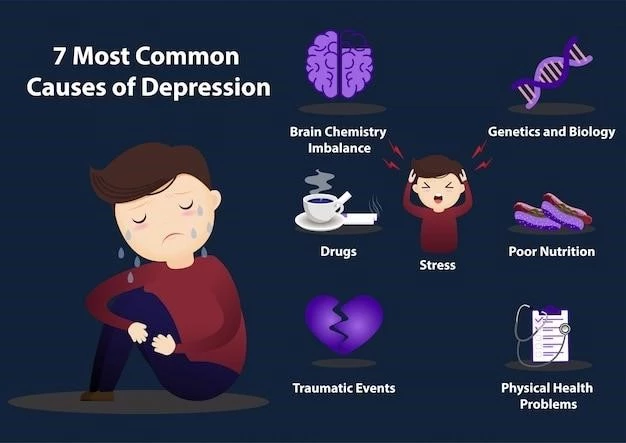Causes of Cockayne Syndrome Type 1
Cockayne Syndrome Type 1 is primarily caused by mutations in the ERCC8 gene‚ also known as the CSA gene. These mutations disrupt the body’s ability to repair damaged DNA‚ leading to the characteristic features of the syndrome. In some cases‚ mutations in the ERCC6 gene (CSB gene) can also cause a milder form of the syndrome.
It’s important to note that Cockayne Syndrome Type 1 is a genetic disorder‚ meaning it is inherited from parents who carry the mutated gene. The syndrome follows an autosomal recessive pattern of inheritance‚ where an affected individual inherits a mutated gene from each parent.
While the exact triggers for the mutations in the ERCC8 and ERCC6 genes are not fully understood‚ ongoing research aims to uncover more about the underlying causes of this rare genetic condition.
Individuals born with Cockayne Syndrome Type 1 may experience a range of symptoms and challenges throughout their lives. Understanding the causes of the syndrome can help in early detection‚ management‚ and treatment strategies to improve the quality of life for those affected.
Symptoms and Signs to Watch for in Cockayne Syndrome Type 1

Cockayne Syndrome Type 1 presents a variety of symptoms that can impact different aspects of a person’s health. Early signs often include poor growth‚ developmental delays‚ and sensitivity to sunlight. As the condition progresses‚ individuals may develop a characteristic ″aged″ appearance‚ with thin hair‚ sunken eyes‚ and a pinched nose.
Other symptoms to watch for include hearing loss‚ dental issues‚ vision problems‚ joint contractures‚ and a lack of subcutaneous fat. Individuals with Cockayne Syndrome Type 1 may also experience neurological symptoms such as intellectual disability‚ seizures‚ ataxia‚ and a decline in motor skills.
Monitoring for signs of skin abnormalities‚ eye abnormalities‚ and unusual sensitivities can aid in the early diagnosis and management of Cockayne Syndrome Type 1. Regular medical evaluations‚ including genetic testing‚ can help confirm a diagnosis and guide personalized treatment plans to address specific symptoms.
Recognizing the symptoms and signs associated with Cockayne Syndrome Type 1 is crucial for timely intervention and support. Families and caregivers should work closely with healthcare providers to address the unique needs of individuals affected by this rare genetic disorder‚ promoting overall well-being and quality of life.
Treatment Options for Cockayne Syndrome Type 1
Currently‚ there is no specific cure for Cockayne Syndrome Type 1. Treatment focuses on managing symptoms and improving quality of life for individuals affected by the condition. A multidisciplinary approach involving various healthcare professionals can help address the diverse challenges associated with Cockayne Syndrome Type 1.
- Supportive Care⁚ Managing symptoms such as feeding difficulties‚ hearing loss‚ vision problems‚ and skin sensitivity through supportive therapies and interventions.
- Physical Therapy⁚ Implementing physical therapy programs to address joint contractures‚ improve mobility‚ and maintain functional abilities.
- Speech and Language Therapy⁚ Providing speech therapy to support communication skills and address any speech-related issues.
- Assistive Devices⁚ Using assistive devices such as hearing aids‚ glasses‚ and mobility aids to enhance independence and quality of life.
- Genetic Counseling⁚ Offering genetic counseling to families to understand the genetic implications and risks associated with Cockayne Syndrome Type 1.
Research into potential targeted therapies and interventions for Cockayne Syndrome Type 1 is ongoing‚ with the aim of developing treatments that address the underlying genetic cause of the condition. Clinical trials and scientific advancements continue to provide hope for future treatment options that may improve outcomes for individuals with Cockayne Syndrome Type 1.
It is important for individuals with Cockayne Syndrome Type 1 and their families to work closely with healthcare providers to explore available treatment options‚ access supportive services‚ and participate in research initiatives aimed at advancing the understanding and management of the syndrome.
Genetic Inheritance Patterns of Cockayne Syndrome Type 1
Cockayne Syndrome Type 1 follows an autosomal recessive inheritance pattern‚ meaning that an individual must inherit two copies of the mutated gene (one from each parent) to develop the condition. Parents who carry one mutated gene for Cockayne Syndrome Type 1 are considered carriers and are typically unaffected by the syndrome.
When both parents are carriers of the mutated gene‚ there is a 25% chance with each pregnancy that their child will inherit two copies of the mutated gene and be affected by Cockayne Syndrome Type 1‚ a 50% chance the child will be a carrier like the parents‚ and a 25% chance the child will inherit two normal copies of the gene and not develop the syndrome.
Genetic testing and counseling can help families understand their risk of passing on Cockayne Syndrome Type 1 to future generations. It is important for carriers to be aware of the genetic implications and potential outcomes to make informed family planning decisions.
By gaining insight into the genetic inheritance patterns of Cockayne Syndrome Type 1‚ families and individuals affected by the condition can better understand the likelihood of passing on the syndrome‚ seek appropriate testing and support‚ and make informed choices regarding family planning options.
Coping Strategies for Families Affected by Cockayne Syndrome Type 1
Dealing with the challenges of Cockayne Syndrome Type 1 can be overwhelming for families. Here are some coping strategies to help navigate the complexities of managing and caring for a loved one with this condition⁚
- Educate Yourself⁚ Learn as much as you can about Cockayne Syndrome Type 1‚ including symptoms‚ treatments‚ and available support services. Knowledge is empowering and can help you make informed decisions.
- Build a Support Network⁚ Connect with other families‚ support groups‚ and medical professionals who have experience with Cockayne Syndrome Type 1. Sharing experiences and resources can provide emotional support and practical advice.
- Seek Counseling⁚ Consider therapy or counseling to address the emotional impact of caring for a child with a rare genetic condition. Talking to a mental health professional can help you process feelings of stress‚ anxiety‚ and grief.
- Take Care of Yourself⁚ Remember to prioritize self-care. Balancing the demands of caregiving with your own well-being is essential. Make time for activities that bring you joy and relaxation.
- Plan for the Future⁚ Create a long-term care plan that outlines your child’s medical needs‚ educational goals‚ and financial considerations. Having a roadmap can provide a sense of security and preparedness.
By implementing coping strategies and seeking support‚ families affected by Cockayne Syndrome Type 1 can better manage the day-to-day challenges and uncertainties associated with the condition. Remember‚ you are not alone‚ and there are resources available to assist you on this journey.
Research Advances in Understanding Cockayne Syndrome Type 1
Ongoing research plays a crucial role in advancing our understanding of Cockayne Syndrome Type 1 and exploring potential treatment options. Here are some recent research advances in the field⁚
- Genetic Studies⁚ Scientists are conducting in-depth genetic studies to identify new mutations associated with Cockayne Syndrome Type 1 and to understand how these mutations contribute to the development of the condition.
- Mechanisms of DNA Repair⁚ Researchers are investigating the mechanisms involved in DNA repair processes and how disruptions in these mechanisms lead to the characteristic symptoms of Cockayne Syndrome Type 1.
- Therapeutic Approaches⁚ Various therapeutic approaches‚ including gene therapy and small molecule interventions‚ are being explored as potential treatments for Cockayne Syndrome Type 1. These strategies aim to target the underlying genetic abnormalities to alleviate symptoms.
- Animal Models⁚ The development of animal models that mimic Cockayne Syndrome Type 1 has provided valuable insights into the biological processes affected by the condition. These models help researchers test potential treatments and understand disease progression.
- Clinical Trials⁚ Clinical trials are underway to evaluate the safety and efficacy of novel therapies for Cockayne Syndrome Type 1. Participation in clinical trials offers individuals with the condition access to cutting-edge treatments and contributes to the advancement of medical knowledge.
By supporting research efforts and staying informed about the latest discoveries in Cockayne Syndrome Type 1‚ scientists‚ healthcare professionals‚ and families can collaborate to improve the diagnosis‚ management‚ and ultimately the quality of life for individuals affected by this rare genetic disorder.
Neurological Complications Associated with Cockayne Syndrome Type 1
Cockayne Syndrome Type 1 commonly presents with a range of neurological complications that can significantly impact an individual’s wellbeing. These complications often arise due to the effects of the genetic mutations on the nervous system. Some neurological complications associated with Cockayne Syndrome Type 1 include⁚
- Intellectual Disability⁚ Individuals with Cockayne Syndrome Type 1 may experience varying degrees of intellectual disability‚ affecting cognitive development and learning abilities.
- Motor Skill Decline⁚ Progressive deterioration in motor skills‚ including coordination‚ balance‚ and muscle strength‚ can occur over time in individuals with Cockayne Syndrome Type 1.
- Seizures⁚ Seizures are a common neurological symptom in individuals with Cockayne Syndrome Type 1 and may require specialized management and treatment by healthcare professionals.
- Ataxia⁚ Ataxia‚ characterized by problems with coordination and voluntary muscle movements‚ can manifest in individuals with Cockayne Syndrome Type 1‚ impacting daily activities.
- Behavioral Changes⁚ Some individuals with Cockayne Syndrome Type 1 may exhibit behavioral changes‚ such as irritability or hyperactivity‚ which can pose additional challenges for caregivers and family members.
Managing neurological complications in individuals with Cockayne Syndrome Type 1 requires a comprehensive approach involving healthcare providers‚ therapists‚ and supportive services. Tailored interventions and therapies can help alleviate symptoms‚ improve quality of life‚ and provide essential support for both individuals with the syndrome and their families.
By staying informed about the neurological complications associated with Cockayne Syndrome Type 1 and collaborating with a multidisciplinary care team‚ families can better navigate the challenges posed by the condition and ensure comprehensive care for their loved ones.
Prognosis and Life Expectancy in Cockayne Syndrome Type 1
Understanding the prognosis and life expectancy of individuals with Cockayne Syndrome Type 1 is essential for families and caregivers. While the severity of the condition can vary among affected individuals‚ Cockayne Syndrome Type 1 is generally associated with a shortened lifespan and a range of health challenges.
The prognosis for individuals with Cockayne Syndrome Type 1 depends on various factors‚ including the presence and management of symptoms‚ access to medical care‚ and the individual’s overall health. Important considerations regarding the prognosis and life expectancy in Cockayne Syndrome Type 1 include⁚
- Multi-System Involvement⁚ Cockayne Syndrome Type 1 affects multiple organ systems‚ leading to a complex array of symptoms that can influence the overall prognosis and quality of life.
- Neurological Degeneration⁚ Progressive neurological complications in Cockayne Syndrome Type 1 can impact cognitive function‚ mobility‚ and daily living activities‚ contributing to the prognosis for affected individuals.
- Respiratory Issues⁚ Respiratory problems‚ including recurrent infections and respiratory failure‚ can affect the prognosis of individuals with Cockayne Syndrome Type 1‚ requiring close monitoring and intervention.
- Palliative Care⁚ For individuals with advanced stages of Cockayne Syndrome Type 1‚ palliative care focuses on symptom management‚ comfort‚ and quality of life‚ supporting both the individual and their families.
It is important for families and caregivers to work closely with healthcare providers to develop a comprehensive care plan tailored to the unique needs of individuals with Cockayne Syndrome Type 1. While the prognosis for Cockayne Syndrome Type 1 can present challenges‚ a supportive and informed approach can help optimize quality of life and ensure compassionate care for those affected by this rare genetic disorder.
